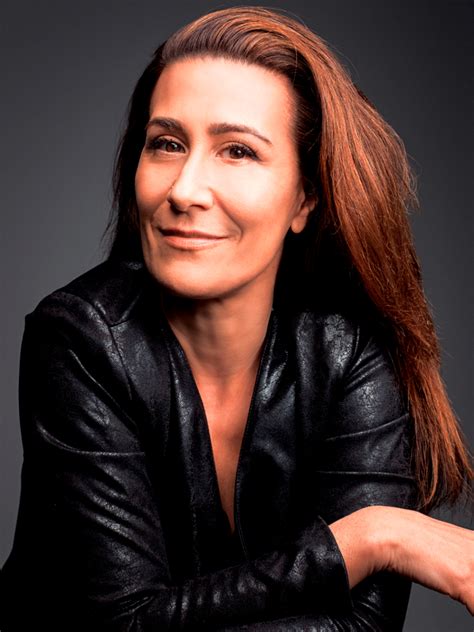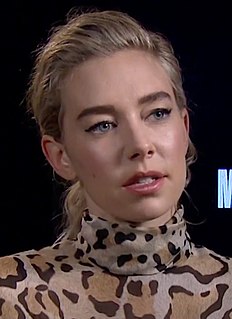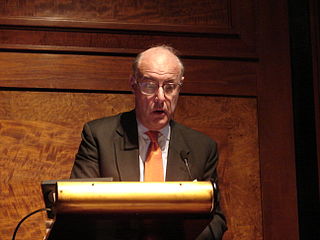Top 212 Biographies Quotes & Sayings - Page 4
Explore popular Biographies quotes.
Last updated on December 18, 2024.
This needs to work on that level, but it has the additional strain of it's going to be profoundly scrutinized by political junkies from the right and the left who will pick apart every little thing. We are inherently dramatizing Hillary Rodham, or Hillary Clinton, who's a very famous figure. There's a lot of biographies about her, but there's also elements that are private moments, that are dramatized with an arc, and we have to take creative license. Everything is sort of a cost-benefit.
Modernism really started with people getting infatuated with the idea of "it's the twentieth century, is this suitable for the twentieth century." This happened before the First World War and it wasn't just the soldiers. You can see it happening if you read the Bloomsbury biographies. It was a reaction to a great extent against Victorianism. There was so much that was repressive and stuffy. Victorian buildings were associated with it, and they were regarded as very ugly. Even when they weren't ugly, people made them ugly. They were painted hideously.
Writing fiction is very different to writing non-fiction. I love writing novels, but on history books, like my biographies of Stalin or Catherine the Great or Jerusalem, I spend endless hours doing vast amounts of research. But it ends up being based on the same principle as all writing about people: and that is curiosity!
As an actor, you're constantly searching for that great character. Also, being a history buff and learning about people in our past and amazing things that they've done, I came across a book about Howard Hughes and he was set up as basically, the most multi-dimensional character I could ever come across. Often, people have tried to define him in biographies, but no one seems to be able to categorize him.
The biographies of the great men see their excesses as signs of their greatness. But Jean Rhys, in her biography, is read as borderline; Anaïs Nin is borderline; Djuna is borderline; etc. etc. Borderline personality disorder being an overwhelmingly gendered diagnosis. I write in Heroines: “The charges of borderline personality disorder are the same charges against girls writing literature, I realize - too emotional, too impulsive, no boundaries."
I write about the period 1933-42, and I read books written during those years: books by foreign correspondents of the time, histories of the time written contemporaneously or just afterwards, autobiographies and biographies of people who were there, present-day histories of the period, and novels written during those times.
We love the old saints, missionaries, martyrs, and reformers. Our Luthers, Bunyans, Wesleys and Asburys, etc... We will write their biographies, reverence their memories, frame their epitaphs, and build their monuments. We will do anything except imitate them. We cherish the last drop of their blood, but watch carefully over the first drop of our own.
I read a lot. I especially read memoirs and biographies. It's very helpful when you're thinking about what's possible and what exists in human behavior; if it exists out there then it can exist on the stage. I really try to go to a lot of concerts. A lot of live events. I just try to keep my ears really, really open.
I read a lot by female psychoanalyst Lou Andreas-Salomé, who wrote prominent biographies of Nietzsche, Rilke, and Freud because she studied with all of them. She had this unbelievable insight into contemporary psychoanalysis. What is so interesting is that she wrote her life, and she knew that her life would be about these men, and it didn't stop her from leading an incredibly successful academic career. But her strange self-awareness that she was going to bookmark these men's lives is really interesting to me.
I am now a mother and a grandmother, and I do not recall that I have ever ignored the claims of the nomadic button and the ceaseless call for sympathy, and the greatest demand on time and patience. My children and their children have been my closest thought, but from the first days of dawning individuality, I have longed unceasingly to make pictures of people... to make likenesses that are biographies, to bring out in each photograph the essential temperament that is called, soul, humanity.
A lot of the people in history who I really admire lived before the hyperinformation age we're living in. Even if they were governing or solving problems in consequential periods, like the Civil War or the world wars or the Great Depression or the Cold War, they had a period of time and space to actually think, to be private and you read their biographies, and they had time to think about what was happening and how to respond. I don't think human nature has changed in the last 50-150 years, but the stresses, the demands on those of us in public life have just exploded.
Life, individual or collective, personal or historic, is the one entity in the universe whose substance is compact of danger, of adventure. It is, in the strict sense of the word, drama. The primary, radical meaning of life appears when it is employed in the sense not of biology, but of biography. For the very strong reason that the whole of biology is quite definitely only a chapter in certain biographies, it is what biologists do in the portion of their lives open to biography.
If you read the biographies of people who have written good books, you often see the point where they suddenly come into themselves, and those weeks in the spring of 1997 were when I came into myself as a writer. They feel like some of the best weeks of writing I’ll ever have. The discovery that I could write better about something as trivial as an ordinary family dinner than I could about the exploding prison population of the United States, and the corporatization of American life, and all the other things I’d been trying to do, was a real revelation.
What a wee little part of a person's life are his acts and his words! His real life is led in his head, and is known to none but himself. All day long, the mill of his brain is grinding, and his thoughts, not those of other things, are his history. These are his life, and they are not written. Everyday would make a whole book of 80,000 words -- 365 books a year. Biographies are but the clothes and buttons of the man -- the biography of the man himself cannot be written.
All of Robert Caro's biographies are exceptional, in part because of Caro's fundamental ambivalence about power. He sees its necessity and use for getting things done, even as he is often repelled by watching power at close range. His masterpiece on Robert Moses, The Power Broker, describes the evolution of Moses from idealist to pragmatist as he became one of the most powerful figures in the 20th century.
How much he was shaped by being in the hospital so much as a kid. Because he was sick, he was a reader, and because he was a reader, Kennedy had heroes. Because he had heroes, he went into politics. [Kennedy liked Sir Walter Scott, King Arthur's knights, and biographies of political leaders.] If he hadn't been sick, he might have been like everybody else in the family, a jock.
Are you feeling helpless when you think about the dark roads of the future? Then read the biographies of the great men! Learn their life stories; they will lead you to the light! Buddha will lead you to the light; Gandhi will lead you to the light! Men of wider horizons will broaden our own horizons!
When I was 12 years old, I read Nancy Drew mysteries and biographies of Madame Curie and Florence Nightingale and books about girls who love horses or go to nursing school. I belonged to the Girl Scouts and got A's in school and rarely disobeyed my parents. I still kept a collection of Barbie dolls in my room, and I almost never spoke to boys.
Some of the biographies [of princess Margaret] were really sensationalist, News of the World sorts, but they were great because they also gave first and secondhand accounts of her at home. The butlers come forward and give little moments, some of which you discard and some which ring somehow true and you use.
That's what the leadership was teaching me, day by day: that the self-interest I was supposed to be looking for extended well beyond the immediacy of issues, that beneath the small talk and sketchy biographies and received opinions, people carried with them some central explanation of themselves. Stories full of terror and wonder, studded with events that still haunted or inspired them. Sacred stories.
Kitty Kelley's method, already perfected in her unauthorised and unflattering biographies of Frank Sinatra and Nancy Reagan, is to write bestsellers that take what she describes as an 'unblinking look' at their subjects - which might, of course, mean that her eyes are permanently open or permanently closed... the result is a work so bad that Britons cannot realise how fortunate they are in being unable to buy it. The great mistake with this book is not that it has been published in Britain, but that it has actually been published anywhere else.
The biographies of great artists make it abundantly clear that the creative urge is often so imperious that it battens on their humanity and yokes everything to the service of the work, even at the cost of health and ordinary human happiness. The unborn work in the psyche of the artist is a force of nature that achieves its end either with tyrannical might or with the subtle cunning of nature herself, quite regardless of the personal fate of the man who is its vehicle.
I was a voracious reader and the library fed my curiosity, imagination and my soul. I read by the shelf - biographies, fantasy - all and everything fed my dreams. Then as an adult whenever I would go on location the first thing we would do as a family is sign up at the closest library. Not only would we find books, but what was happening in that town, because the library is the head of the community.
Remember the movie 'The Matrix,' where virtual information popped up to help inform physical day-to-day reality? Such things won't always be the stuff of Hollywood. If the Internet is accessible via contact lenses, biographies will appear next to the faces of the people we talk to, and we will see subtitles if they speak a foreign language.
By the study of their biographies, we receive each man as a guest into our minds, and we seem to understand their character as the result of a personal acquaintance, because we have obtained from their acts the best and most important means of forming an opinion about them. "What greater pleasure could'st thou gain than this?" What more valuable for the elevation of our own character?
I read everything, but generally more fact than fiction - especially autobiographies and biographies. I've read 'Long Walk to Freedom' by Nelson Mandela at least twice on holiday. Every time, I'm totally awed by his vision, strength and forgiveness. I feel honoured to have got to know him and his wonderful wife Graca over the years.































